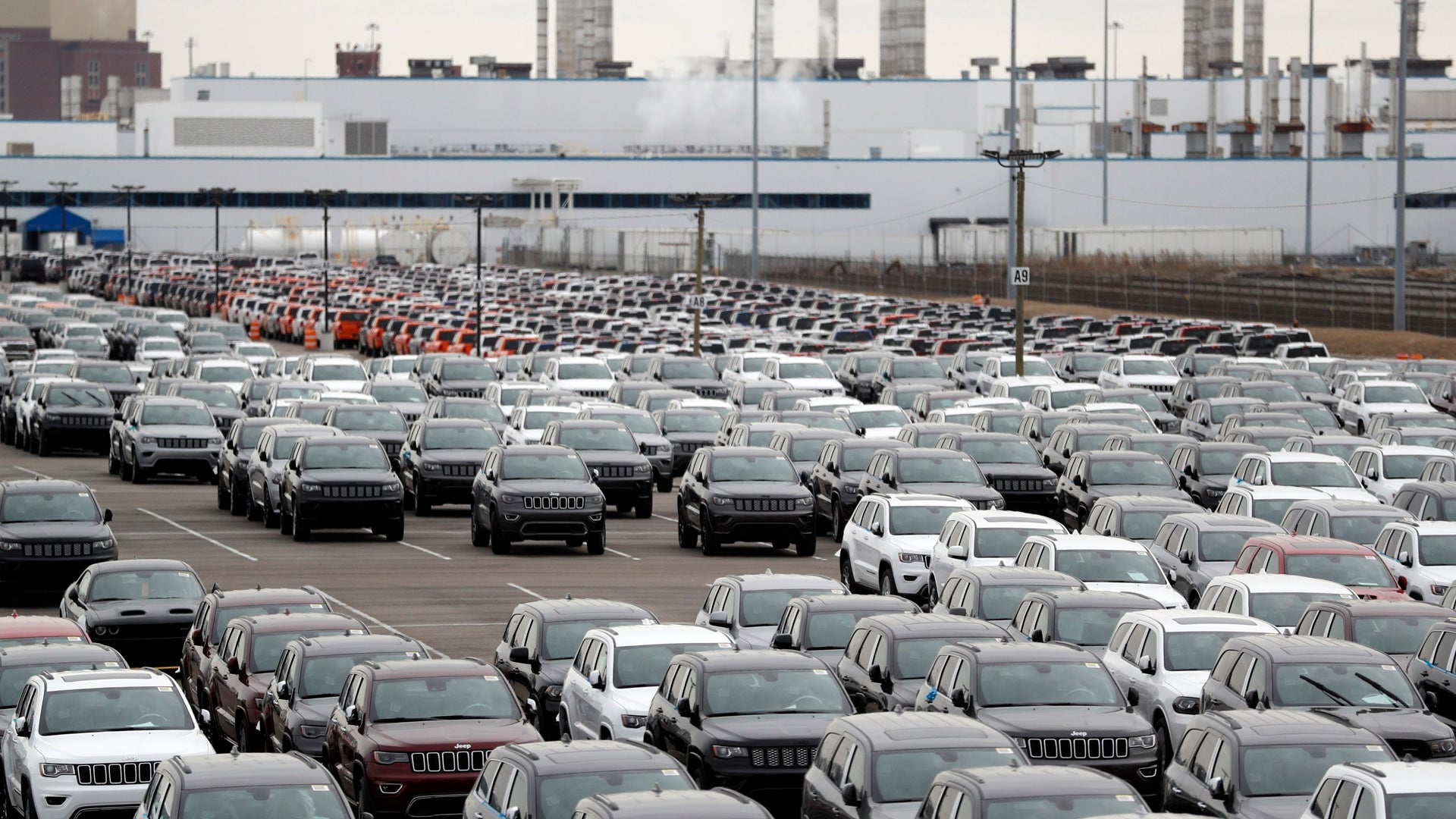Good morning and welcome back to Speed Lines, The Drive's daily roundup of what matters in the world of transportation. In a lot of places, we're seeing the beginning of the end of the lockdowns. Let's dive into what that means for the auto industry.
May 18?
The Wall Street Journal kicks us off today with a story quoting "people familiar with the plans" who say Detroit's automakers are targeting a tentative May 18 restart date for car plants. The newspaper says the date was settled on after negotiations with the United Auto Workers union and Michigan Gov. Gretchen Whitmer’s office.
Previously, it was reported that early May was considered for a restart date, but that's been pushed back amid concerns about containing the virus. It's important to note that the automakers have not confirmed this new date in the story.
From the WSJ:
The May 18 start date would apply to all of the Detroit companies’ U.S. factories, even in states where stay-at-home orders are lifting sooner, the people familiar with the discussions said. The timing would allow the auto makers to finalize safety protocols with the UAW and give parts suppliers more time to prepare shipments, the people said.
The ambiguity around the companies’ restart plans has left many automotive suppliers unsure of whether they can legally run their assembly lines or recall workers in preparation of filling orders for customers with plants outside of Michigan, suppliers executives, consultants and attorneys have said.
The car companies have said they will provide protective gear for workers when they return and will try to maintain social-distancing protocols in their plants through measures such as dividers between work stations.
As we noted yesterday, it's not going to be as simple as flipping a switch and getting workers back to the factory. Auto manufacturing is a complex, global business, with entire parts and supply chains dependent on factories in other states and other countries.
Even if Michigan's ready to get back to making cars, Tennessee, or China or Italy might not be. And that's going to pose problems as this process gets underway.
Boeing CEO Says Air Travel Won't Be 'Normal' Until 2023 And Beyond
Let's check in on air travel, which, in case you forgot, is still happening at extremely reduced levels. In fact, passenger traffic is down a whopping 95 percent, according to the story I quote below. And even if things start to "open up" again, we're looking at three or four years before people really get back to flying the way they did in 2019. Here's what Boeing CEO Dave Calhoun said to shareholders, as quoted by The Seattle Times:
“We expect it will take two to three years for travel to return to 2019 levels and an additional few years beyond that for the industry’s long-term trend growth to return,” he said.
Speaking at the company’s annual meeting of shareholders, which was held virtually because of the pandemic, he added that when the commercial airline market stabilizes, it “will be smaller and our customers’ needs will be different.”
As an initial step in its plan to reduce the size of its workforce, Boeing separately told U.S. employees Monday what it’s offering to those willing to take a voluntary layoff — which starting in early June will bring a first wave of “several thousand” job cuts.
The lack of air travel makes sense. Other regions will be hit harder than others by coronavirus outbreaks, and nobody really wants to be in close proximity to strangers on a plane. As a result, massive cuts are expected at Boeing, which was already reeling from the 737 MAX scandal.
Yet More Bad News For Nissan
It's hard to imagine a large automaker—hell, even a large company, period—more ill-prepared for this downturn than Nissan. Sure, Ford's a bit of a mess after rough financial returns in 2019, but it's not dealing with a disastrous executive scandal up top, an unclear brand identity, an aging lineup, and a cash crunch all together the way Nissan is. 2020 was supposed to be a rebuilding year for Nissan's new executive team post-Carlos Ghosn; but with plummeting new car sales, that increasingly feels like a pipe dream.
Reuters reports Nissan will postpone its fiscal 2019 results to late May, where it's expecting to report bad news:
In a statement, Japan’s No. 2 automaker said that it expected an annual operating loss of as much as 45 billion yen ($419.7 million), down from a previous forecast announced in February for an operating profit of 85 billion yen. It expects to post a net loss of as much as 95 billion yen, compared with a previous forecast for 65 billion yen profit.
Nissan is bracing for its worst financial performance since the 2008 global financial crisis, when it posted an operating loss of 137.9 billion yen.
“The company’s performance has continued to decline, primarily impacted by the COVID-19 pandemic,” Nissan said in the statement, adding that it would delay announcing its annual financial results and restructuring plan to May 28. It had been scheduled for mid-May.
Ghosn thinks Nissan could go bankrupt by 2022. With its global car sales down 43 percent year-over-year, that certainly seems more like a plausible prediction than an angry missive from an ex-employee.
On Our Radar
Oil Swings Wildly, Touches 1986 Levels (WSJ)
Harley-Davidson cuts dividend, halts buybacks to preserve cash (Reuters)
Delivery Robots Aren't Ready—When They Could Be Needed Most (Wired)
Read These To Seem Smart And Interesting
'Heads we win, tails you lose': how America's rich have turned pandemic into profit (The Guardian)
‘Trolls World Tour’ Breaks Digital Records and Charts a New Path for Hollywood (WSJ)
Tweak Your Pancake Mix for a Better Brunch at Home (Lifehacker)
Your Turn
What does "reopening" look like where you live? Do you think it's time?









